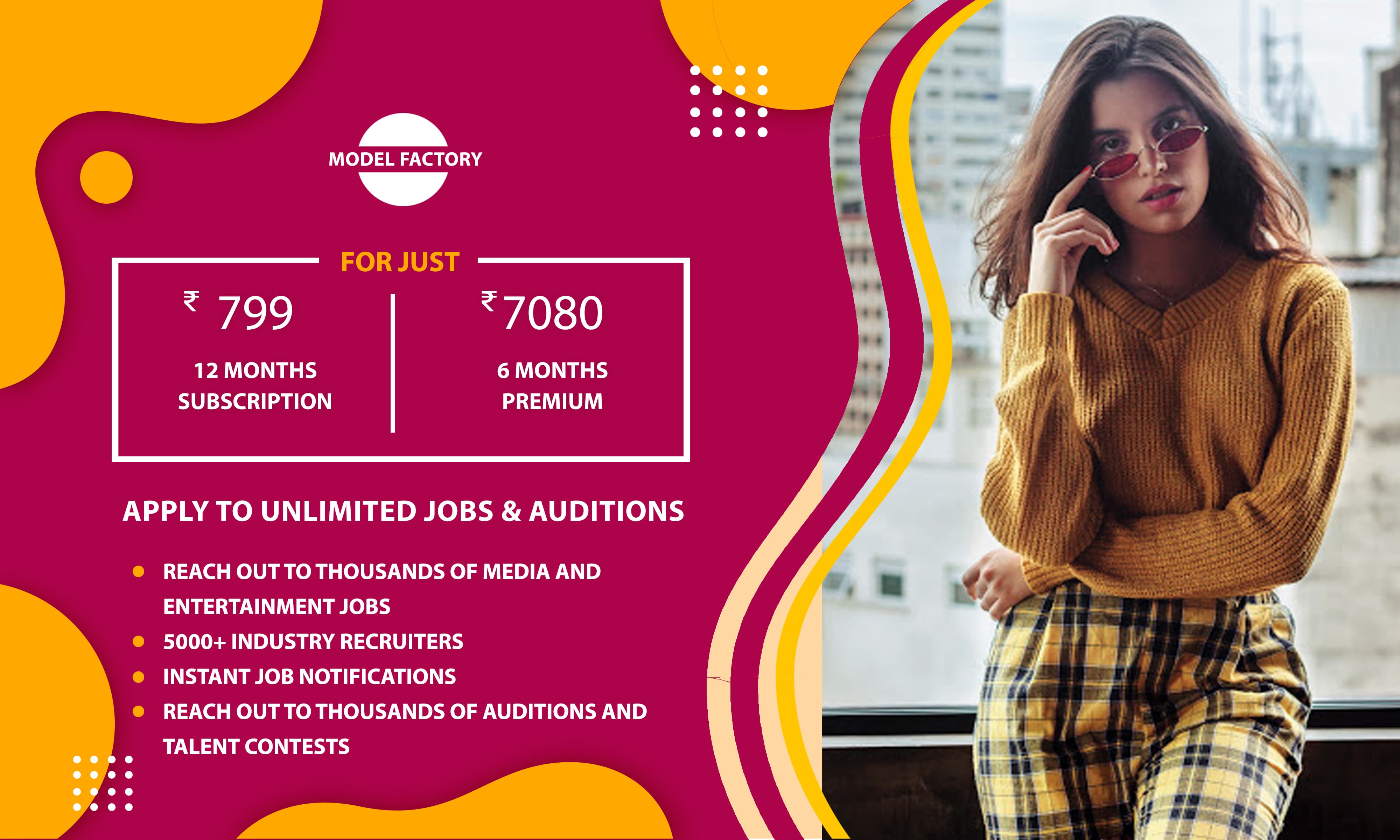What You Should be Paying Influencers?
- 22 Jul 2020
- Models
What You Should be Paying Influencers?
We believe that Influencers, just like other types of talent, should be paid fairly for the work they do. They've worked hard – often for years – to grow their following, create a loyal community, and produce beautiful content. Cultivating a large, engaged following that brands want to tap into is a lot harder than simply adding the #follow4follow hashtag to an Instagram post.
Read on to get our advice on what you need to consider when working with Influencers.
What should I be paying Influencers?
Unfortunately, there is no one answer to this. Payment will vary widely depending on the Influencer – their following, engagement rate, the types of content they create and their experience.
Contra
If you're not familiar with the word 'contra', it basically means payment with things, not money.
Sometimes Influencers with smaller followings (often referred to as Micro-Influencers) are happy to be paid in contra. This is usually only the case when the Influencer is a genuine fan of your brand, so sees value in getting something for free.
Payment
If you're a bigger brand who usually spends money on traditional advertising, we strongly encourage you to consider paying Influencers instead of, or as well as offering contra.
If you're asking an Influencer to post about something that is commercial in nature (you're selling a product or service for profit) and you're paying for other types of advertising, they should be paid too.
Payment is often charged out as a certain rate per post, which will vary depending on the channel. Bear in mind it takes an influencer a lot less time to send a tweet than it does to film, edit and upload a YouTube video, which is why rates may vary per channel.
Want to be a Casting Professional? Find out how...
When considering what a reasonable rate looks like, ask yourself, does the Influencer:
- Have a really engaged following?
- Have an audience that is highly relevant to your service or product?
- Share your values – look at their posts to check if you feel good about their usual content
If you say yes to all three, it's likely this influencer is a good fit for you and should return the results you need – which is probably worth paying a little more for!
What should I ask Influencers to do?
Before hiring an Influencer, make sure you have a very clear idea of what you're trying to achieve. You might be looking for exposure for your brand, to get more followers for your own accounts, or hit a specific sales target.
With that in mind, have a think about what social media channels and types of posts would help you achieve this. A good Influencer will discuss different options with you – they know what their followers will respond to.
Make sure you set clear expectations with the Influencer. Let them know if you require final sign off on the content before they post, what days and times you're expecting them to post and any usernames, hashtags or URLs they need to use.
What does good engagement look like?
This will depend on the Influencer and what you're trying to achieve. You can work out the engagement rate of a post by dividing the total likes and comments by the total amount of followers. It's a rough measure, but it will give you a good idea of how successful the post/s have been.
Below are some stats that may help.
Update to dress sizing on ModelFactory.
How do I know if it was successful?
If you've set yourself a clear goal before hiring an Influencer, it will make establishing ROI a little easier. Without a goal, how will you know if working with an Influencer was a good investment?
You can also use free tools like Bitly to create unique URLs that will let you track clicks and website traffic. More experienced Influencers will probably be able to provide you with information like this too.
What information should they provide?
A good Influencer will provide you with as much info as possible. It's important to discuss this beforehand to make sure clear expectations are made and you get the stats you need.
On ModelFactory, Casting Professionals connect directly with the talent, and can offer whatever fee they feel is fair for the job on offer.
ModelFactory talent range from complete beginners through to highly experienced professionals, and will have different pay expectations accordingly.
Some beginners may be happy to work for a lower budget to gain credits; while some more experienced talent will be looking for a commercial rate they feel reflects the skills they will bring to the job.
ModelFactory doesn’t provide a suggested rate card, or take a booking fee or commission from what you pay the talent.
What if I can’t pay anything?
ModelFactory connects aspiring and professional talent with opportunities in all areas of the entertainment industry. As part of this, we understand that unpaid or low-paid collaborations can be great for building experience, networks, showreels, and portfolios.
If you’re a student filmmaker or someone looking to collaborate, or are just not sure if you fall into the group of Casting Professionals where payment should be discussed, check out our no/low pay advice or check out the bottom of this page where we talk about commercial versus very low budget productions.
Please note that any roles involving nudity must pay at least the national minimum wage.
I have a budget, but don’t know what kind of fee I should offer?
This can be as complicated or as straight forward as you want it to be. We encourage you to be fair and to aim to pay something that rewards the time the talent has put into working for you, and the skill they bring to the role.
A good starting place is to take a look at National Minimum Wage in your area. This is the bare minimum talent will be expecting as an hourly rate, if you have a budget and intend to pay your talent. It’s also the law!
Ideally though, a fee encompasses more than just a simple hourly rate.
Here are some good questions to ask yourself:
Exposure: What kind of exposure will the talent receive for doing this work? Generally speaking more exposure equals greater fees. While you might think talent would be excited about exposure and do anything to book a part that offers this, remember that if an actor or model becomes associated with your brand, it may mean that they don’t book other work for a time, as other producers prefer a fresh face. For example, if a model books a job doing a Coke TV commercial, you can be sure that no other beverage company will be booking them for a very long time.
Usage: How many places will the talents work appear? Are you booking them for a TV commercial? Great, but hang on, will that commercial also appear in the cinema, along with stills from the commercial showing up in every bus stop in town? Producers will often calculate a fee to cover every area of usage.
Rollovers: Will the work appear once? Will it play on TV relentlessly for a month, and then come back again a year later? Contracts will often state that work can be used for an agreed period of time, and beyond that time, the talent will be paid a percentage of their fee again (up to 100%).
Deferred payment: Research this option if you are doing a feature film that may get a distribution deal at a later date. You can arrange to make payment at that point, rather than at the time the work is done.
What else will help me decide how much to pay?
Have a think about the level of skill you need, to nail this job.
Do you need someone experienced to pull this off, or could someone up and coming work well?
Less experienced talent may be willing to work for less to gain credits in the industry, while more experienced talent may expect to be paid more for their skills. So, it will be a trade-off.
Remember, experienced talent can make life easier on set:
- Do you need an actor who can to hit a mark and find their light first time?
- Do you need a photographer with good quality camera equipment?
- Do you need a model with a wide range of clothes and great experience to suit your shoot?
- Do you need a sound technician with their own equipment?
- Do you need a make-up artist with a good range of make-up?
Have a think about the kind of production you’re putting together?
If you have a super small budget, and all the talent are being treated the same, understand what is involved and are keen to take part (For example, an Indie film set where everyone is living on the smell of an oily rag), pay what you can. Be honest and up front about it, and it will probably be a valuable experience for all involved. Short films, webisodes, no budget feature films, small business promotions such as website stills or catalogues often fall into this bucket.
For commercial productions with professional crews that will have bigger industry reach, we strongly encourage you to consider whether you are paying what the job is worth, whatever the experience level of the talent.
Some factors that would generally indicate a production is commercial include: most people on set being paid, a profit being made from the end product (e.g. ticket sales, increased product sales), or budget being assigned to the production in other areas (e.g. script, marketing, location).
If you still need help, you can also search the Internet for union rates in your area. These provide a good guide for the minimum rates expected and some unions even have template contracts you can use.






